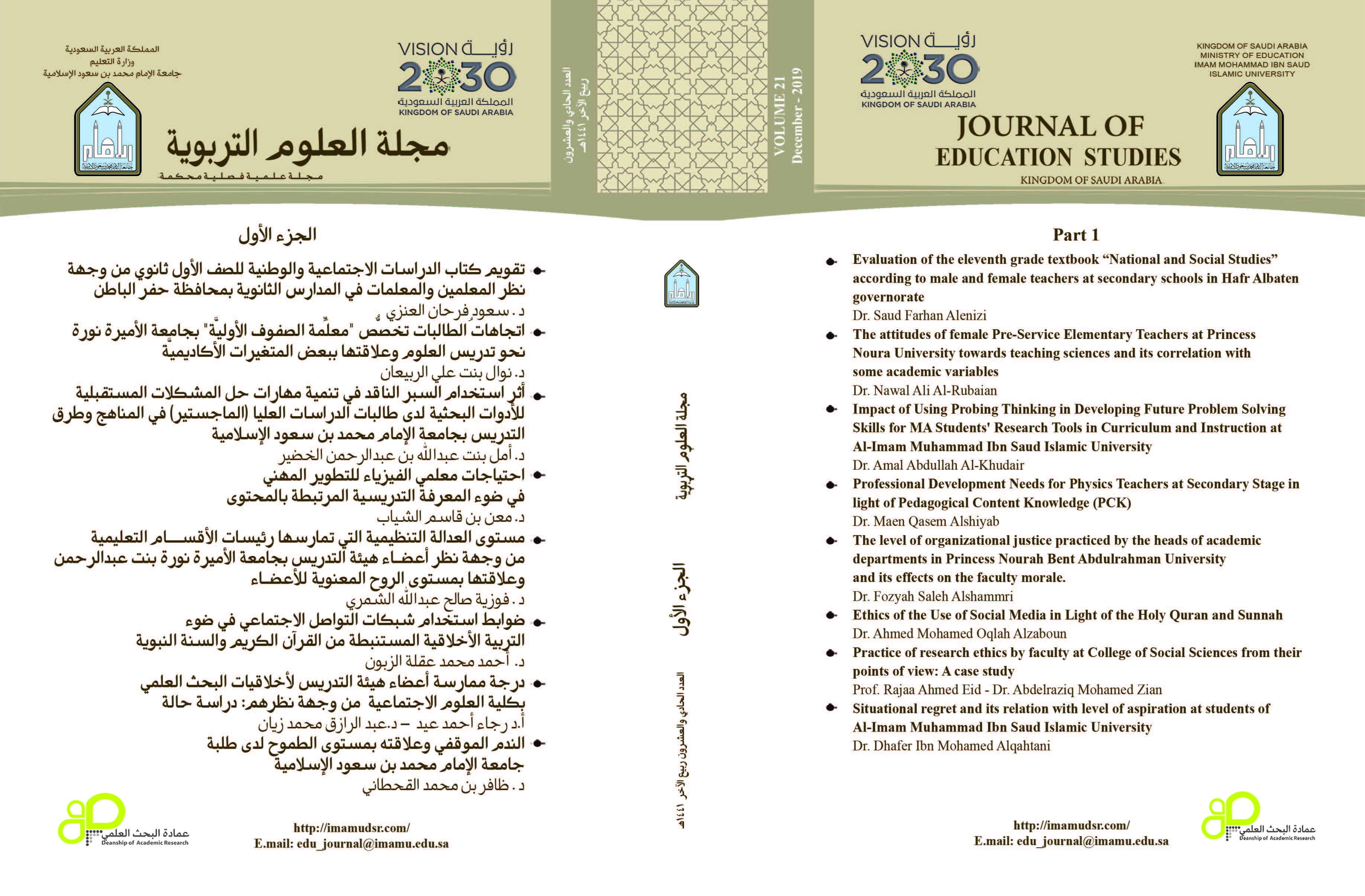Practice of research ethics by faculty at College of Social Sciences from their points of view: A case study
Keywords:
Scientific Research, Research Ethics, Faculty Members, College of Social SciencesAbstract
The study aimed at identifying how much the faculty members of College of Social Sciences practice research ethics from their points of view. The authors used the descriptive method (case study). A questionnaire was designed to include the following ethics of research: integrity, relationship between the supervisor and the graduate student, sample and population of the research, and statistical analysis and results. The research population consisted of faculty members at the Faculty of Social Sciences at Al-Imam Muhammad Ibn Saud Islamic University. The study was administered to a sample of (119) faculty members. Findings of the study show that the faculty of Social Sciences questioned in the study think they are highly committed to the practices of research ethics in the four areas. The degree of the practice of research ethics was arranged in descending order as follows: integrity, relationship between the student and supervisor, statistical analysis and results, research sample and population. Some of the research ethics related to integrity at the bottom of the list though they are related to integrity which is previously regarded as one of the top ethics. Of the most important ethics, in this context, are: poor reference of primary and original sources, less honesty in citation and quotation from sources and references, meagre objectivity and scientific neutrality and integrity when presenting the topic or in drawing the conclusions. Some of the ethics of the relationship between the student and the supervisor was one of the lowest with a medium degree of practice, namely, lack of supervising beyond the scope of general specialization, accurate and fair evaluation of research, whether for supervision or review. Practices such as suggesting answers to examinees, respecting the culture and religion of the examinees, minimizing procedures that may disrupt students or deprive them of part of the course or class attendance scored medium degree. Practices of some ethics of statistical analysis and results such as analysis of statistical results through statistical offices, over-interpretation of the results and judgments, replace of statistical analysis with another analysis when it fails to support the hypotheses, and the study design is determined by statistical methods, all are done with a medium degree. The study also presented the most important suggestions to support the ethics of research from the sample point of view. In light of the results of the research and the literature dealt with ethics of research and the occurrence of academic irregularities and the role of the university as a moral educational institution, the study proposed to formulate a vision for forming a committee of research ethics in the College of Social Sciences.




